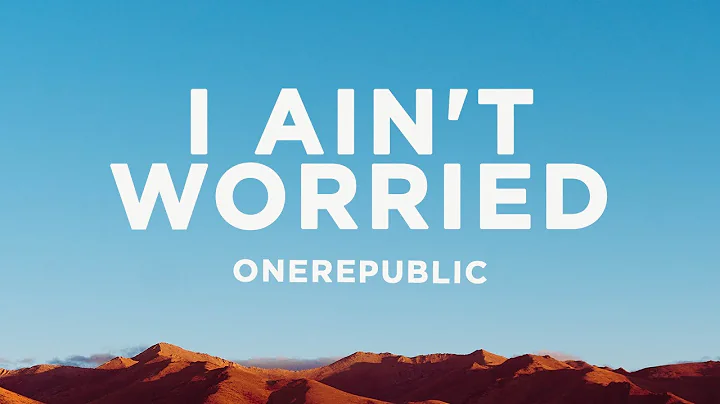¿Qué miedo in English?
¡qué miedo! how scary!
¿Qué bueno Translate to Spanish?
¡qué bueno! (especially Latin America) excellent! ⧫ great!
¿Como no Spanish to English?
in what way You use the word how when you ask about the way that something happens or the way that you do something.
¿Cómo estai Spanish?
-How are you?
¿Qué ironia in English?
Expresión que da a entender algo contrario o diferente de lo que se dice, generalmente como burla disimulada.
¿Qué vergüenza in English?
¡qué vergüenza! how embarrassing!
¿Qué haces?
What are you doing?
¿Cómo se dice en inglés me alegro por ti?
Good for you. Me alegro por ti. I am happy for you.
¿Cómo está en inglés?
«en inglés»: ✍🏼 How are you? → ¿Cómo estás / está / están?
¿Qué es eso in Spanish?
¿qué es eso? what's that?
¿Cómo va eso in Spanish?
' aparece también en las siguientes entradas: English: how goes it?
¿Qué What in Spanish?
Qué (with an accent) can be an interrogative pronoun used to ask questions. It translates to "what...?": ¿Qué vamos a hacer? What are we going to do?

¿Cómo estás en México?
Un saludo más informal es “Hola”, “¿Qué tal?” (¿Qué pasa?) o “ ¿Cómo estás? " (¿Cómo estás?).
¿Qué dices cuando alguien dice Como estás?
Cuando alguien te pregunta ¿Cómo estás? Si te sientes bien, dices estoy bien ; También se podría decir, estoy muy bien, para dar más énfasis, que significa “muy bien” o “muy bien”. También puedes agregar una palabra extra, gracias, que significa “gracias”, y estoy bien, gracias; significa "Estoy bien, gracias".
¿Qué aburrido means?
Oh, he was boring. Qué aburrido es esto. It's pretty boring. Of course it's boring.
¿Qué significa irónicamente caliente?
Irónicamente caliente. Este "Irónicamente Caliente": es para la persona que tiene un sentido único del estilo y abraza lo irónico . Es una forma divertida de demostrar que no tienes miedo de romper el molde y destacar entre la multitud. Es una forma sutil de comunicar. que no te vas a llevar.
¿Quién creó la ironía?
Según Encyclopædia Britannica: El término ironía tiene sus raíces en el personaje cómico griego Eiron , un inteligente desvalido que por su ingenio triunfa repetidamente sobre el personaje jactancioso Alazon. La ironía socrática de los diálogos platónicos deriva de este origen cómico.
¿Como una y mugre meaning?
«Ser uña y mugre» (also, «ser uña y carne» = literally, “to be nail and flesh”) means “to be inseparable” when you refer to two people. If two people are «uña y mugre», it means that they are very close to each other emotionally and they spend a great deal of time together, often a close friend.
¿Qué poca vergüenza meaning?
¡Qué poca vergüenza! What a shameful thing.
¿Cuál es el sinónimo de vergüenza?
Sinónimos de vergüenza (sustantivo deshonra, bochorno) confusión. desprecio. culpa. humillación.
¿Cuál es la diferencia entre lo que haces y lo que estás haciendo?
Una pregunta es sobre el trabajo o la profesión de una persona y la otra, sobre qué acción está realizando una persona en este momento o en un futuro próximo.
¿Qué estás haciendo en plena forma?
Wyd es un acrónimo de mensajes de texto e Internet que significa ¿Qué estás haciendo? o ¿Qué (harías) tú?
¿Qué estarás haciendo estos días?
En este caso, la pregunta cambiará un poco y lo más probable es que sea “¿Qué estás haciendo estos días?” lo que significa que la persona quiere saber qué actividades o trabajo está realizando actualmente . Solo haz esta pregunta a personas que no hayas visto en quizás un mes o más.
¿Cómo contestar gracias a ti en Inglés?
Tip: “You're welcome” es la forma más comúnmente usada, pero tal vez por eso si quieres realmente dejar huella, opta por una de las otras opciones más originales y amables.
References
- https://www.collinsdictionary.com/dictionary/spanish-english/c%C3%B3mo
- https://www.gsam.com/content/gsam/us/en/institutions/market-insights/gsam-insights/perspectives/2023/growth-vs-value-re-think-your-investment-style.html
- https://www.bankrate.com/investing/stocks-vs-mutual-funds/
- https://www.7prosper.com/post/should-you-invest-in-mutual-funds-when-share-markets-are-down
- https://www.willisowen.co.uk/help/income-or-growth
- https://www.nasdaq.com/articles/is-amazon-stock-a-buy-now-14
- https://www.kiplinger.com/investing/stocks/where-can-the-magnificent-seven-stocks-go-in-2024
- https://www.investopedia.com/terms/r/rateofreturn.asp
- https://gitnux.org/average-mutual-fund-return/
- https://www.investopedia.com/investing/how-pick-best-mutual-fund/
- https://fortune.com/recommends/investing/how-much-of-your-income-should-go-toward-investing/
- https://money.usnews.com/investing/articles/best-long-term-stocks-to-buy
- https://money.usnews.com/investing/articles/best-performing-stocks-of-the-year
- https://corporatefinanceinstitute.com/resources/career-map/sell-side/capital-markets/income-stocks/
- https://www.angelone.in/knowledge-center/trading-account/what-is-return-on-equity
- https://moneywithkatie.com/blog/where-the-7-percent-return-comes-from-in-investing
- https://www.openenglish.com/blog/es/10-maneras-de-decir-de-nada-en-ingles/
- https://www.fidelity.com/learning-center/investment-products/mutual-funds/2-schools-growth-vs-value
- https://www.investopedia.com/ask/answers/10/mutual-funds-advantages-disadvantages.asp
- https://www.collinsdictionary.com/dictionary/spanish-english/eso
- https://www.lseg.com/en/insights/data-analytics/value-and-growth-investing-two-sides-of-the-same-coin
- https://csimarket.com/markets/markets_glance.php?days=ytd
- https://www.quora.com/What-happens-if-I-invest-1000-in-SIP-for-10-years
- https://www.spanishdict.com/translate/%C2%BFC%C3%B3mo%20est%C3%A1is%3F
- https://translate.google.com/translate?u=https://www.spanishdict.com/examples/how%2520are%2520you%2520doing%2520in%2520mexico%253F%3Flang%3Den&hl=es&sl=en&tl=es&client=rq&prev=search
- https://www.fidelity.com/stock-plan-services/understanding-taxes
- https://saintinvestment.com/blog/growth-funds-vs-income-funds-whats-the-difference/
- https://www.forbes.com/advisor/in/investing/is-mutual-fund-safe/
- https://translate.google.com/translate?u=https://www.wikihow.com/What-Are-You-Up-to&hl=es&sl=en&tl=es&client=rq&prev=search
- https://www.investopedia.com/ask/answers/05/062305.asp
- https://www.merrilledge.com/article/growth-vs-value-investing-two-approaches-to-stocks
- https://www.investopedia.com/financial-edge/0812/how-to-live-off-your-dividends.aspx
- https://www.investopedia.com/terms/a/aar.asp
- https://medium.com/@mosessetiady13/a-dive-into-the-future-predicting-the-5-most-promising-business-sectors-and-niches-for-2025-aaf4225caf7e
- https://www.financestrategists.com/wealth-management/investments/mutual-fund/growth-mutual-fund/
- https://www.bajajfinserv.in/investments/mutual-fund-returns
- https://www.screener.in/screens/797657/stock-doubling-every-3-years/
- https://www.investopedia.com/terms/i/incomestock.asp
- https://www.businesstoday.in/personal-finance/investment/story/sip-of-rs-1000-monthly-can-lead-to-significant-gains-heres-how-much-you-can-save-in-10-20-and-30-years-410464-2023-12-22
- https://www.investopedia.com/articles/professionals/072415/value-or-growth-stocks-which-best.asp
- https://cafemutual.com/news/industry/30938-equity-mutual-funds-beat-inflation-by-over-12-in-25-years
- https://www.investopedia.com/articles/investing/010616/5-characteristics-good-growth-stocks.asp
- https://www.tipranks.com/stocks/cost/forecast
- https://www.finra.org/investors/investing/investment-products/mutual-funds
- https://www.gripinvest.in/blog/earn-50K-per-month
- https://www.linkedin.com/pulse/which-indicators-used-assess-value-growth-potential-stock-aditi-gupta
- https://corporatefinanceinstitute.com/resources/career-map/sell-side/capital-markets/income-fund/
- https://www.investopedia.com/ask/answers/091815/when-are-mutual-funds-considered-bad-investment.asp
- https://finance.yahoo.com/news/genius-ways-1-000-month-105500970.html
- https://www.5paisa.com/blog/fundamentally-strong-penny-stocks-in-india
- https://www.cuemath.com/questions/if-you-invest-10000-today-at-10-interest-how-much-will-you-have-in-10-years/
- https://translate.google.com/translate?u=https://www.dictionary.com/e/acronyms/wyd/&hl=es&sl=en&tl=es&client=rq&prev=search
- https://medium.com/@Levente22/7-proven-ways-to-make-5-000-9-000-per-month-in-passive-income-1aafbf025154
- https://www.fool.com/investing/how-to-invest/etfs/etfs-to-buy/
- https://www.usatoday.com/money/blueprint/investing/best-growth-etfs/
- https://finance.yahoo.com/news/where-millionaires-keep-money-070638027.html
- https://www.valueresearchonline.com/stories/54396/growth-vs-value-funds-difference-and-which-is-better/
- https://corporatefinanceinstitute.com/resources/career-map/sell-side/capital-markets/growth-stocks/
- https://www.ocbc.com/personal-banking/articles/three-reasons-why-income-investing-works.page
- https://smartasset.com/investing/ways-to-invest-10000
- https://www.nerdwallet.com/article/investing/best-performing-mutual-funds
- https://www.bankbazaar.com/mutual-fund/mutual-fund-returns.html
- https://www.forbes.com/advisor/investing/best-stocks-to-buy-now/
- https://m.economictimes.com/markets/stocks/news/planning-to-invest-in-mutual-funds-5-risks-you-need-to-be-aware-of/articleshow/98035970.cms
- https://www.spanishdict.com/translate/%C2%BFQu%C3%A9%20haces%3F
- https://www.schwab.com/mutual-funds/benefits
- https://www.thehindubusinessline.com/markets/todays-pick/
- https://www.kiplinger.com/investing/stocks/best-stocks-to-buy-now
- https://www.quora.com/What-does-the-Spanish-phrase-Ser-u%C3%B1a-y-mugre-mean-in-English
- https://talkmarkets.com/content/how-much-money-do-i-need-to-invest-to-make-3000-a-month?post=431352
- https://smartasset.com/taxes/how-to-avoid-capital-gains-tax-on-stocks
- https://www.schwab.com/learn/story/reaching-yield-income-investments-bring-risk
- https://www.piramalfinance.com/vidya/best-sectors-to-invest-in-the-indian-stock-market/
- https://tools.carboncollective.co/future-value/1000-in-20-years/
- https://www.collinsdictionary.com/es/diccionario/espanol-ingles/verg%C3%BCenza
- https://www.investopedia.com/terms/g/growthstock.asp
- https://www.investopedia.com/terms/g/growthfund.asp
- https://www.bajajfinserv.in/investments/high-risk-mutual-funds-explained
- https://money.usnews.com/investing/articles/best-growth-stocks-to-buy
- https://www.livemint.com/money/personal-finance/how-much-of-my-salary-should-go-into-sips-11680110041064.html
- https://www.fool.com/investing/how-to-invest/stocks/good-return-on-investment/
- https://www.openenglish.com/blog/es/como-estas-en-ingles/
- https://dle.rae.es/iron%C3%ADa
- https://translate.google.com/translate?u=https://www.spanishpod101.com/lesson/absolute-beginner-mexican-spanish-for-every-day-1-10-responses-to-how-are-you%3Flp%3D380&hl=es&sl=en&tl=es&client=rq&prev=search
- https://context.reverso.net/traduccion/espanol-ingles/qu%C3%A9+poca+verg%C3%BCenza
- https://smartasset.com/investing/stock-market-rate-of-return
- https://m.economictimes.com/mf/analysis/29-equity-mutual-funds-offer-over-20-in-10-years/articleshow/104175480.cms
- https://cooperpacific.ca/2019/01/the-difference-between-growth-and-income-investments/
- https://finance.yahoo.com/news/top-10-growth-stocks-buy-122059027.html
- https://ycharts.com/glossary/terms/monthly_return
- https://translate.google.com/translate?u=https://culturalatlas.sbs.com.au/mexican-culture/mexican-culture-greetings&hl=es&sl=en&tl=es&client=rq&prev=search
- https://translate.google.com/translate?u=https://learningenglish.voanews.com/a/what-do-you-do-or-what-are-you-doing-/5109140.html&hl=es&sl=en&tl=es&client=rq&prev=search
- https://money.usnews.com/investing/articles/10-best-investments-for-2024
- https://www.cnn.com/cnn-underscored/money/invest-in-growth-stocks
- https://www.ingles.com/traductor/qu%C3%A9%20aburrido
- https://www.nerdwallet.com/article/investing/average-stock-market-return
- https://www.fool.com/investing/2024/03/27/3-stocks-that-can-double-again-in-2024/
- https://www.livemint.com/market/stock-market-news/nifty-50-target-for-march-2025-at-24-800-says-icici-securities-l-t-bhel-zomato-m-m-sbi-life-among-top-picks-11710219646467.html
- https://www.bajajfinserv.in/investments/what-is-a-growth-fund
- https://www.fool.com/the-ascent/buying-stocks/articles/heres-what-happens-when-you-sell-a-stock-at-a-loss/
- https://get.ycharts.com/resources/blog/the-best-performing-stocks/
- https://www.financestrategists.com/wealth-management/stocks/dividends-vs-capital-gains/
- https://www.businesstoday.in/mutual-funds/best-mf
- https://ag.ny.gov/resources/individuals/investing-finance/investment-guidance
- https://www.wordreference.com/es/en/translation.asp?spen=%C2%BFC%C3%B3mo%20va%20eso%3F
- https://spanish411.net/Spanish-What-Does-Que-Mean.asp
- https://smartasset.com/investing/whats-a-good-return-on-investment-roi
- https://www.unfcu.org/financial-wellness/50-30-20-rule/
- https://www.fool.com/the-ascent/buying-stocks/articles/heres-what-happens-when-you-invest-5-a-day-over-40-years/
- https://money.usnews.com/investing/articles/high-paying-dividend-stocks-in-the-s-p-500
- https://www.icicidirect.com/calculators/cagr-calculator
- https://www.stoddardfinancial.net/dividend-versus-growth-investments/
- https://www.amfiindia.com/investor-corner/knowledge-center/what-are-mutual-funds-new.html
- https://www.experian.com/blogs/ask-experian/how-much-income-should-you-invest/
- https://www.collinsdictionary.com/dictionary/spanish-english/bueno
- https://translate.google.com/translate?u=https://www.redbubble.com/i/t-shirt/Ironically-Hot-by-Aidiali/137158894.FB110&hl=es&sl=en&tl=es&client=rq&prev=search
- https://www.bankrate.com/investing/schedule-d-reporting-your-capital-gains-or-losses/
- https://translate.google.com/translate?u=https://en.wikipedia.org/wiki/Irony&hl=es&sl=en&tl=es&client=rq&prev=search
- https://www.collinsdictionary.com/dictionary/spanish-english/miedo
- https://mconsultingprep.com/growth-equity
- https://www.businesstoday.in/personal-finance/investment/story/these-flexi-cap-equity-mutual-funds-have-given-30-34-times-returns-in-the-last-20-years-402080-2023-10-16
- https://translate.yandex.com/es/dictionary/Espanol-Ingles/me%20alegro%20por%20ti
- https://scripbox.com/mutual-fund/highest-return-mutual-fund-in-last-10-years
- https://smartasset.com/estate-planning/8-best-investments-to-generate-monthly-income
- https://www.schwab.com/learn/story/are-mutual-funds-good-investment
- https://www.bankrate.com/investing/low-risk-investments/
- https://www.bankrate.com/investing/guide-to-mutual-funds/
- https://www.investopedia.com/ask/answers/050415/what-good-annual-return-mutual-fund.asp
- https://www.fool.com/terms/g/growth-fund/
- https://www.bankrate.com/investing/growth-investing-vs-value-investing/
- https://www.smallcase.com/collections/long-term-stocks-to-buy/
- https://www.barclays.co.uk/smart-investor/investments-explained/funds-etfs-and-investment-trusts/funds-income-or-accumulation-units/
- https://money.usnews.com/investing/articles/best-growth-stocks-for-the-next-ten-years
- https://translate.google.com/translate?u=https://www.thesaurus.com/browse/shame&hl=es&sl=en&tl=es&client=rq&prev=search